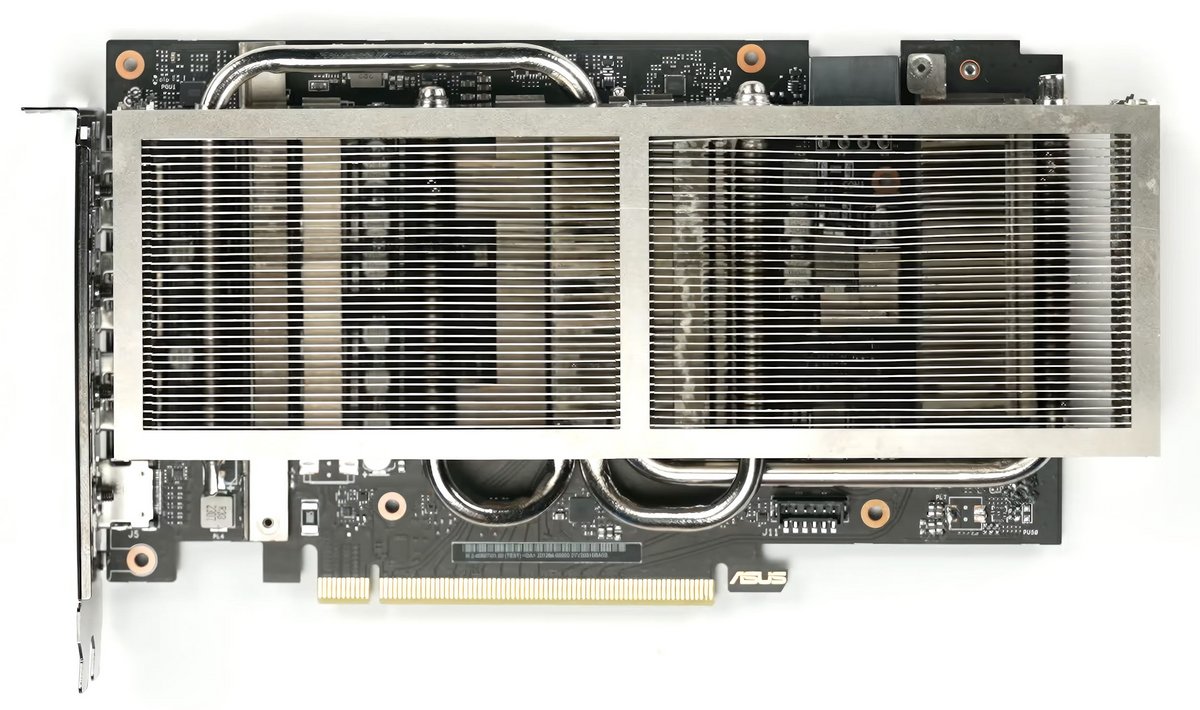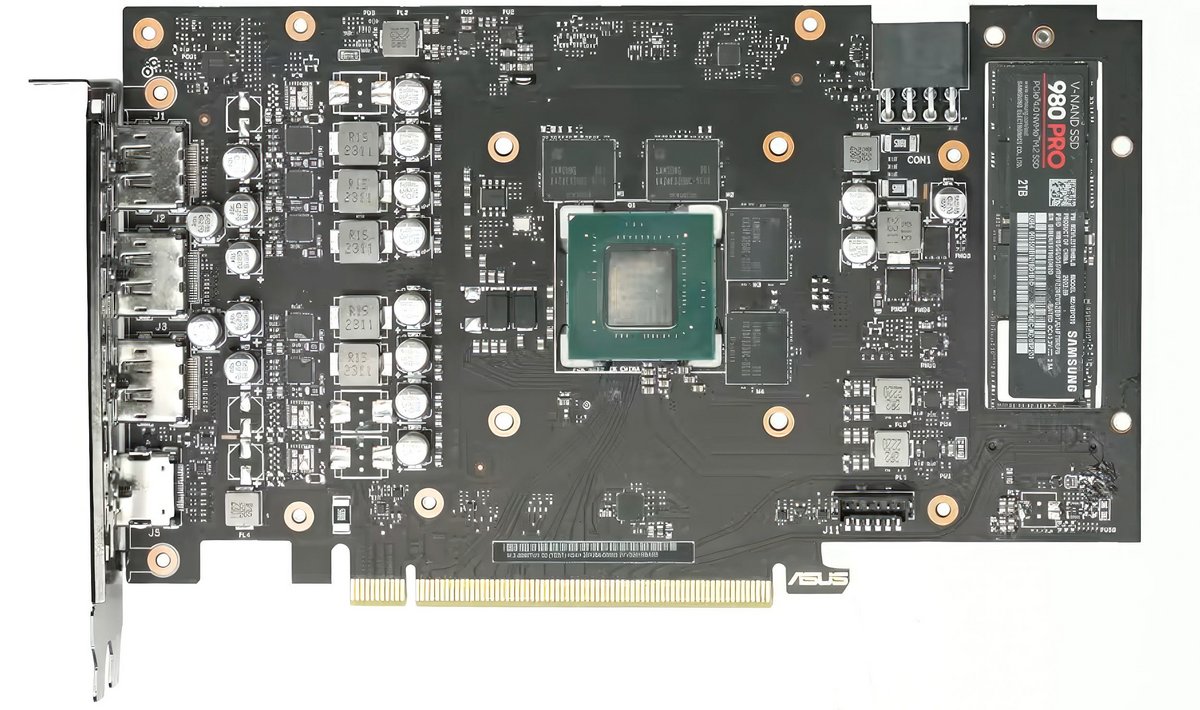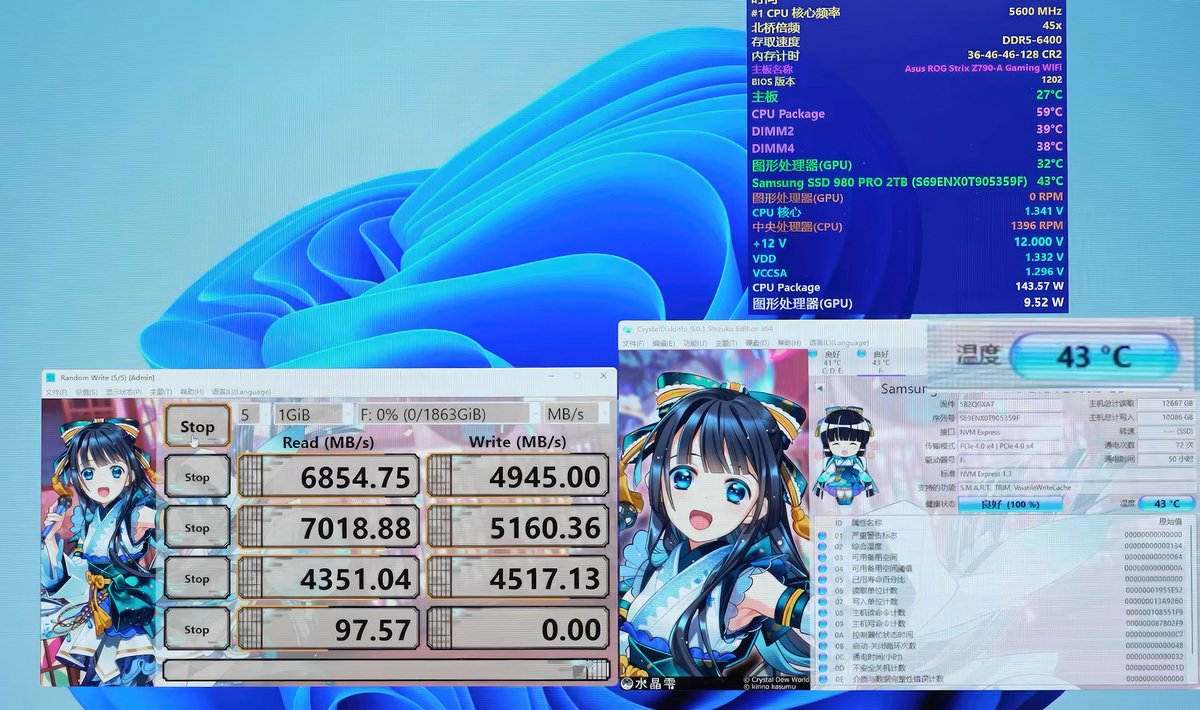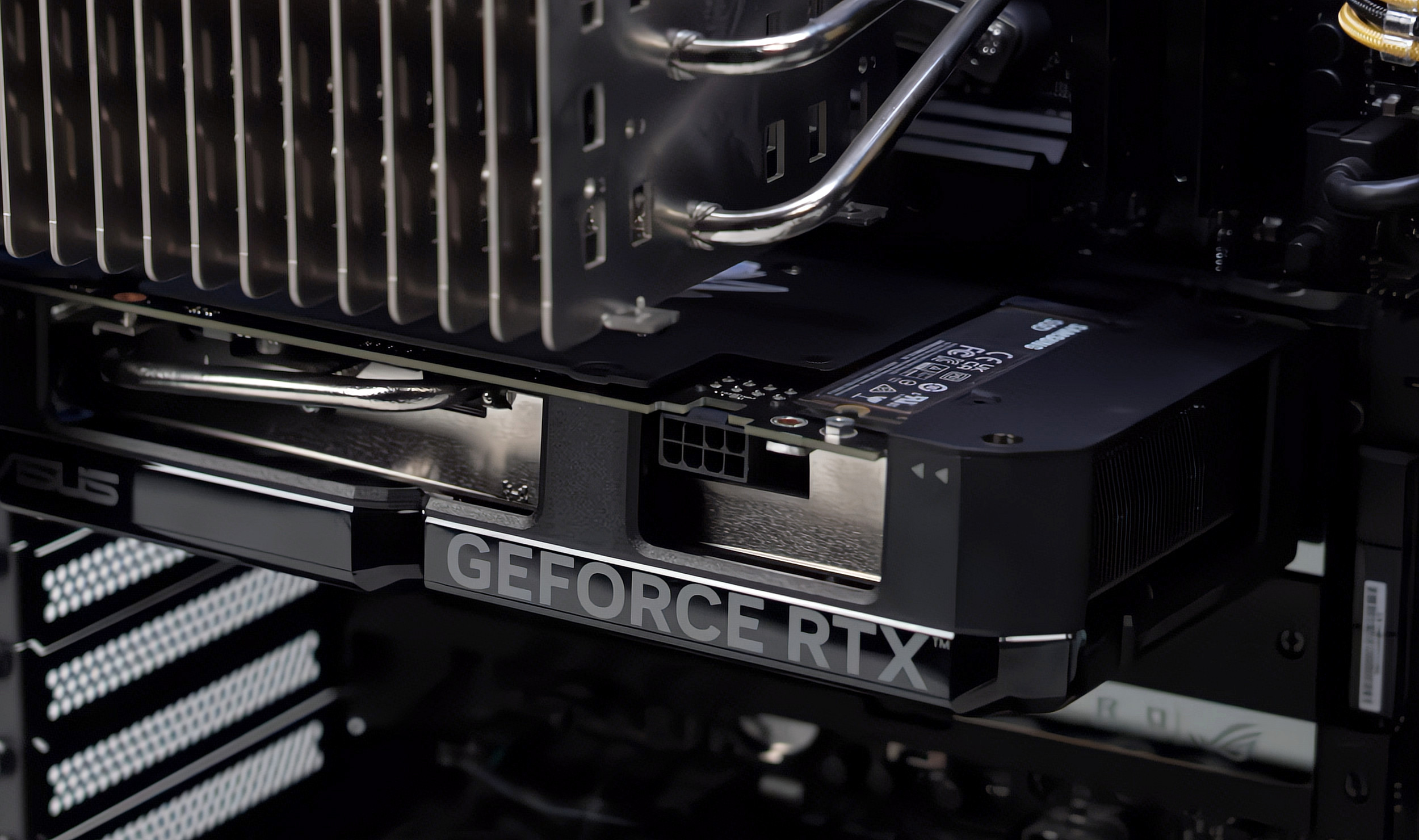A graphics card that takes advantage of unused PCI Express lines to integrate an NVMe SSD in M.2 format? Here’s a good idea!
For now, everything suggests that it is only a prototype. At the house of Clubicwe would in any case be delighted to be able to test the beast.
Take advantage of the 8 unused PCIe lanes
ASUS engineers started from several observations. Indeed, you should know that to standardize things, all graphics cards have a PCI Express x16 slot… even those that only use x8.
© VideoCardz
This is the case with the RTX 4060 or RTX 4060 Ti which therefore leave out half of the PCIe lines of an x16 port. In addition, NVMe SSDs in M.2 format are increasingly used, but their position on the motherboard can sometimes make them difficult to access.
Finally, the cooling of these same SSDs may require a dedicated device which adds to the price of the component. Why not solve these three little problems at once?


© VideoCardz
A “cool” and efficient SSD
To do this, ASUS therefore imagined a graphics card based on RTX 4060 Ti GPUs and took advantage of the unused PCIe lines to associate it with an M.2 port which can receive an NVMe PCIe Gen 4 SSD.
The 16 lines of the PCIe x16 port will then be used and the SSD thus placed on the back of the graphics card is much more accessible: it is in any case unnecessary to remove the GeForce as you can see in our first article photo. Finally, the SSD benefits – at least on one side – from the heatsink and the ventilation of the graphics card.

Tony Yu, responsible at ASUS, clarifies a little the behavior of the product. First, he wanted to reassure about the heating of the SSD – down 10°C – while that of the GPU does not seem to be affected. He also pointed out that the speeds of the SSD are, so to speak, unchanged: we go from 6.9 GB / s to 6.8 GB / s during peak readings.
There remains the question of power supply: an SSD should only increase it, in the worst case, by around ten watts. This is not what risks faulting the 8-pin port used for an RTX 4060 Ti. Does ASUS have any plans to distribute such cards in the near future?
Source : VideoCardz

8